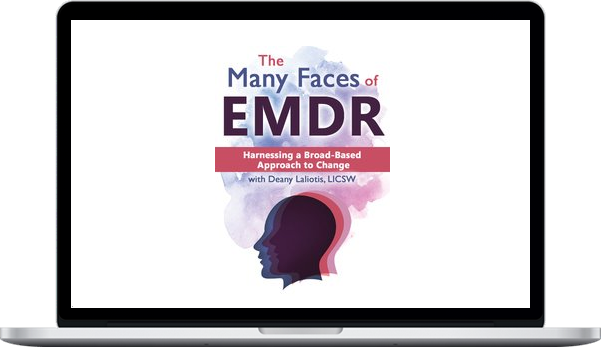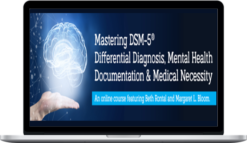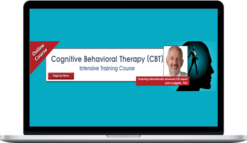Deany Laliotis – The Many Faces of EMDR: Harnessing a Broad-Based Approach to Change
$59.00 $28.00
»Delivery: Within 24hs
Description
Deany Laliotis – The Many Faces of EMDR: Harnessing a Broad-Based Approach to Change
While EMDR is best known for its treatment of trauma, it has developed into a comprehensive psychotherapy approach that treats a broad spectrum of presenting issues across various clinical populations. This workshop is for practitioners who are interested in learning more about this highly effective, evidence-based approach that can treat a wide range of problems from single traumatic events to relationship problems, self-esteem issues, and complex trauma. You’ll explore how to:
- Identify nodal experiences shaping not only clients’ current symptoms, but their lives and identity
- Focus on the predominant themes in clients’ lives that underlie their current difficulties
- Integrate the adaptive information-processing model of EMDR with whatever model of therapy you’re currently using
What you’ll learn in The Many Faces of EMDR: Harnessing a Broad-Based Approach to Change
Outline
- Trauma Often Occurs in Childhood
- Personal Experiences
- Developmental Trauma
- Capacities to Resolve Trauma are Overwhelmed
- Dissociative Processes
- Complex trauma
- Affect Dysregulation
- Self Esteem
- Difficulty in Relationships
- Conclusions about the Self
- Shifting the Way a Memory is Stored
- Images of A Parent’s Denial of Trauma Stored in Brain
- Inadequately Processed
- Easily Triggered
- Lack of Connection Between Information and Feelings
- Emotional Hijack
- EMDR As Integrative Therapy
- Clinical Research
- Present is Informed by the Past
- State Specific Emotions
- Adaptive Information Processing System in Brain
- Orienting Response
- REM Activity
- Brain Processes in Present Time while Reflecting on Negative Experience
- Use of Dual Awareness Increases Capacity to Feel More Stable
- Creating Appropriate Responses and Exploring Personal Capacities
- Focus of Present Experiences and Changing These
Objectives
- Summarize the implications of nodal experiences as they relate to shaping clients’ current symptoms Discuss clinical strategies to identify predominant themes in clients’ lives that underlie their current symptomology.
- Integrate the adaptive information-processing model of EMDR with other therapeutic interventions used within a clinical setting.
More courses from the same author: Deany Laliotis
Delivery Policy
When will I receive my course?
You will receive a link to download your course immediately or within 1 to 21 days. It depends on the product you buy, so please read the short description of the product carefully before making a purchase.
How is my course delivered?
We share courses through Google Drive, so once your order is complete, you'll receive an invitation to view the course in your email.
To avoid any delay in delivery, please provide a Google mail and enter your email address correctly in the Checkout Page.
In case you submit a wrong email address, please contact us to resend the course to the correct email.
How do I check status of my order?
Please log in to HealingCourse account then go to Order Page. You will find all your orders includes number, date, status and total price.
If the status is Processing: Your course is being uploaded. Please be patient and wait for us to complete your order. If your order has multiple courses and one of them has not been updated with the download link, the status of the order is also Processing.
If the status is Completed: Your course is ready for immediate download. Click "VIEW" to view details and download the course.
Where can I find my course?
Once your order is complete, a link to download the course will automatically be sent to your email.
You can also get the download link by logging into your HealingCourse account then going to Downloads Page.
Related products
Total sold: 2
Total sold: 3
Total sold: 3
Total sold: 2










